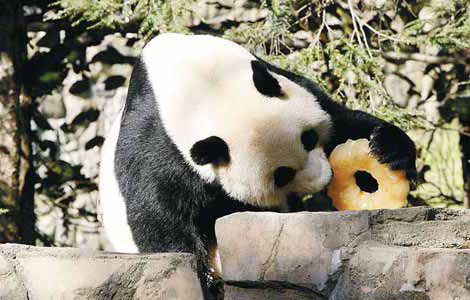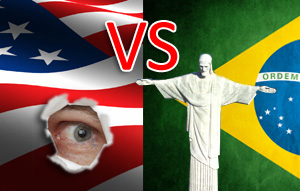'Tycoon brand' fruits coveted by young consumers
Updated: 2013-12-06 14:06
(English.news.cn)
|
|||||||||||
"Our whole family respect him for his hard work and unyielding spirit," said Ke Ting, a full-time Beijing mother of a nine-year-old boy. "We bought his oranges last year and again this year."
While his fruits tasted better than any other oranges that were available on Beijing's markets, Ke said she was particularly impressed by Chu's endurance in times of difficulties.
"When we traveled to Yunnan on holiday this summer, I took my son Jia Fang to visit the Hongta Group, the tobacco giant Chu built, and told him the old man's story," she said. "He was clearly moved."
Ke said she hoped her son would grow up to be strong and unbending even if he had to suffer setbacks and failures.
Chu was not the first business tycoon to take up farming in China. Several other big-name business leaders have chosen to show their strength in agriculture.
Real estate tycoon Pan Shiyi has launched "Pan's apples," a sweet, juicy apple species grown in northwest China's Gansu Province. The apples are sold for 30 yuan per kg, six times the average apple price, but sell well at online retail outlets including Benlai.com and Taobao.com.
Meanwhile, Liu Chuanzhi, founder of the Lenovo Group, China's PC giant, is soon to launch a quality Chinese gooseberry brand, a major product of Lenovo's new agricultural arm. The fruit will be priced at 56 yuan per kg, almost 10 times the average price for other brands.
When his company's agricultural arm was set up last year, Liu said he was optimistic about the new business, as more Chinese consumers were willing to pay a higher price for better, safer food amid growing food safety concerns.
He was echoed by Liu Shanshan, a 30-year-old Beijing white-collar worker. "The names of these business tycoons, when included in the brand names, increase consumers' confidence of their quality. That's why I have chosen these expensive fruits on the web instead of the cheaper ones sold at neighborhood stores."
Most avid buyers of "tycoon brand" fruits are young Internet jockeys in their 20s and 30s.
"My parents, however, complain the fruits are too expensive and are not worth the price," said Liu. "It's hard to explain the brand story to their generation who habitually economize on everything."
Cao Lei, head of China's E-commerce research center, attributed the popularity of these "tycoon brands" to their effective business-to-consumer (B2C) distribution channel.
"Online shopping has become a lifestyle for young urbanites," said Cao. "The B2C sales model in fruit sales has effectively cut costs and transportation time."
Related Stories
Zhangjiagang residents pick oranges over weekend 2013-11-27 09:53
Largest orange diamond fetches $35.5m at auction 2013-11-14 07:30
Changyinsha orange plantation opens to public 2013-11-12 14:11
China on orange alert as Typhoon Fitow nears 2013-10-05 07:16
Wimbledon rules orange shoes out but not colored undies 2013-06-27 13:09
Today's Top News
Nelson Mandela has died: President Zuma
French PM starts 5-day visit
UK set to OK Huawei cyber center
New cargo flight builds bonds with Russia
Broader economic prospects pursued
Banks not allowed to use Bitcoin
Dialogue 'key to relations'
China eyes high-level FTAs network
Hot Topics
Lunar probe , China growth forecasts, Emission rules get tougher, China seen through 'colored lens', International board,
Editor's Picks

|

|

|

|

|

|





